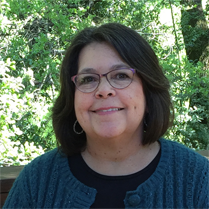Celebrating Heritage
 How can we teach our children to respect people who are different than they are? One way we can do this is by teaching them about themselves and others. February is the beginning of the Heritage Month celebrations for 2018. Here is the schedule for each month that a cultural heritage is designated to be recognized. Additional infomation can be found on the Diversity Central website.
How can we teach our children to respect people who are different than they are? One way we can do this is by teaching them about themselves and others. February is the beginning of the Heritage Month celebrations for 2018. Here is the schedule for each month that a cultural heritage is designated to be recognized. Additional infomation can be found on the Diversity Central website.
| Month | Heritage Celebrated |
| February | African American History Month |
| March | National Women’s History Month, Irish-American Heritage Month |
| May | Asian Pacific American Heritage, Older Americans Month and Jewish American Heritage Month |
| June | Gay Lesbian Pride Month |
| September | National Hispanic-Latino Heritage Month (Sept. 15-Oct. 15) |
| October | National Disability Employment Awareness Month and National Italian American Heritage Month |
| November | National American Indian Heritage Month |
Teaching About Cultural Heritage
There are many informative online resources for parents to use. They provide historical information, book lists for different age groups and reading levels, opportunites for writing, and hands-on activities. I have listed a sampling of these resource websites including some geared toward pre-adolescents and adolescents in grades 4-12. Older children and teens, as well as younger children, can thoughtfully express their feelings about what they are learning orally or in writing. Reading and other activies will likely prompt questions that can lead to in-depth discussions.
African-American History Month
This is What Teaching Our Kids About Women’s History Really Looks Like
5 Ways to Celebrate Asian Pacific American Heritage Month
LGBT Pride Month: How Parents Should Approach the Subject with Their Children
Resources to Celebrate Hispanic Heritage Month with Your Kids
Positive Impact
Children benefit from learning about people who are different than they are. They also benefit from learning about their own ethnic and cultural heritage. Show your children pictures of their relatives and ancestors. Tell them their stories. Create a family tree with your kids.
When children learn their own family’s history, they are better able to relate to the histories of others. They can find similarities in other people’s hardships and triumphs. They can also connect to others and have compassion for other people’s struggles. Compassion and understanding lead children to focus on how people are similar, rather than on how they are different. This will have a positive impact on how children will interact with and treat each other.
Wishing you happy and prosperous New Year with love and affection,
Rosemarie
Copyright © 2018 by GenParenting

Rosemarie Pérez has worked with English learners and their families in public education for more than twenty years. She has served as a bilingual teacher, professional developer, and district administrator. Administrative roles included serving as the Director of English Learners for an elementary school district and as a Coordinator of Reading and Language for the San Mateo County Office of Education. Rosemarie continues to work with families as she leads the Santa Clara County Office of Education’s Parent Engagement Initiative during the past three years. Ms. Pérez provides expert guidance to teachers, school site staff, and school administrators in creating culturally sensitive parent training modules and academic curricular units. She facilitates parent education and Common Core Standards workshops. Engaged parents are further trained to become parent leaders and advocates. Rosemarie is the mother of five adult children and three grandchildren.

